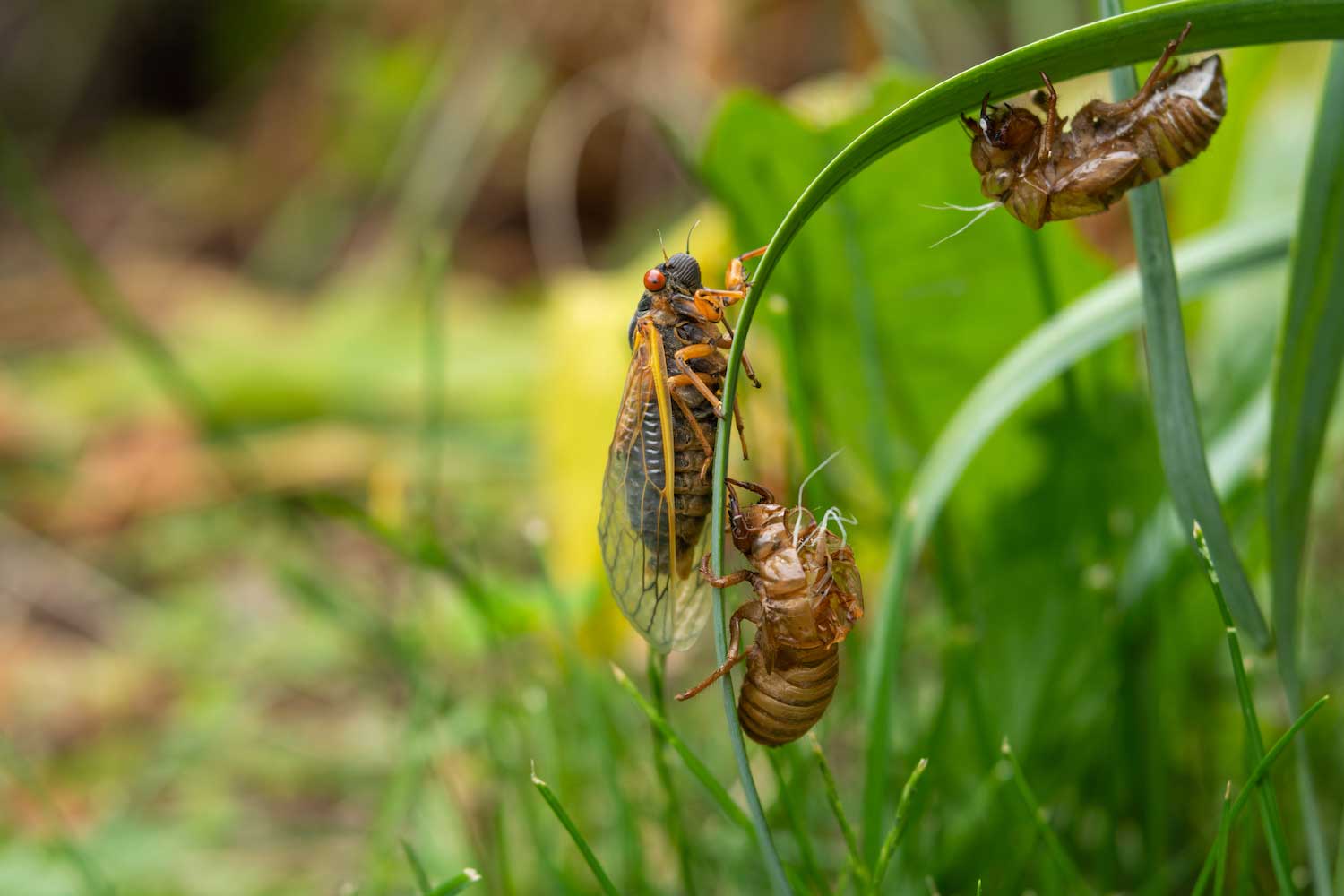Have you heard the buzz? This summer will be a cicada summer

It may be the year of the dragon according to the Chinese zodiac, but it's going to be the summer of the cicada here in northern Illinois.
The summer of the cicada is kind of a big deal because these noisy bugs only emerge from underground every 17 years, and the northern Illinois brood of these 17-year, or periodical cicadas, is considered to be the largest cicada emergence anywhere, according to the University of Illinois Extension. Two emergences ago, when the northern Illinois brood emerged in 1990, people reportedly had to use snow shovels in some areas to clear their driveways and sidewalks. And in places where large numbers of the dying cicadas pile up on the ground, the smell of their rotting bodies may even be noticeable.
Our 17-year cicadas last emerged in 2007, creating quite a racket in the process. Expect this summer's show to get started in late May or early June. The buzzing will be noticeable pretty much everywhere in northern Illinois because these insects are the loudest in the world. Their buzz can be more than 100 decibels, which is as loud as a motorcycle, lawn mower or tractor, according to the Peggy Notebaert Nature Museum.
Only male cicadas buzz, which they do to attract a mate. And while all cicada sounds may seem alike to human ears, each species has its own unique call that the insects can differentiate, National Geographic reports. The males create sound with an organ called a tymbal. The tymbal has a series of ribs that can buckle onto one another when the cicada flexes its muscles. As each rib buckles, it creates a clicking noise, and the combined effect of the clicks is the buzzing sound we are familiar with.
Adding to the din this summer will be annual cicadas, also called dog-day cicadas. These are the cicadas we hear every summer, although they aren't quite as deafening as the 17-year variety because they don't emerge in such great quantities. Annual cicadas also have life cycles that last multiple years — typically between two to eight years depending on the particular species — but their life cycles are not synchronized, so some emerge each year rather than all in the same year, making their arrival less newsworthy.
Before emerging and making their presence known with the familiar albeit annoying song, cicadas live busy lives underground — no matter how long they are down there. Like many other insects, the cicada life cycle has three stages: egg, nymph and adult. Females lay up to 400 eggs in tree branches and twigs, and they hatch six to 10 weeks later. The nymphs drop to to the ground and then burrow in the soil, spending almost their entire lives digging through the soil drinking the liquid from plant roots, according to National Geographic. They emerge as adults but only live a few weeks, focused on reproducing to start the cycle anew.
Above ground, cicadas don't travel far. After emerging from the soil they will finally put their wings to use, but they only fly about a half-mile, the Illinois extension reports. Because they only travel a short distance above ground, they expand their range very slowly, even though periodical cicadas are the longest known living insects on Earth.
The eastern United States is only place on Earth with periodical cicadas, according to the Illinois extension. Not all periodical cicadas are on a 17-year life cycle, however. In some places, including southern Illinois, they are on a 13-year life cycle. Illinois is home to five broods of periodical cicadas, including three that will emerge this summer. In addition to the northern Illinois brood, which covers almost the entire northern half of the state, the great southern brood, which is found in parts of the southern half of the state, will emerge. These cicadas are on a 13-year life cycle. In addition, the Mississippi Valley brood, which will largely emerge in 2028, will likely include some stragglers that emerge this summer. A small portion of eastern Illinois is home to the brood that emerged in 2021 to great fanfare, and a small part of the western part of the state is home to a brood that will not emerge again until 2031.

